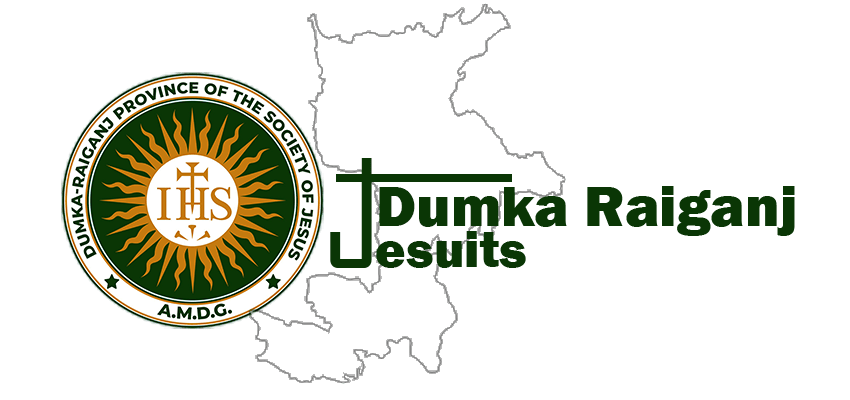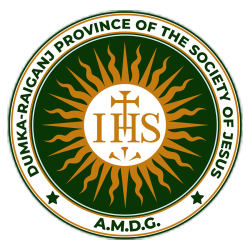
Kodma
Tribal Welfare Centre, Kodma
The vision of Sona Santal Samaj Samiti, a people’s organization at Kodma, is to create an egalitarian society in which the poor and marginalized share equal space with others, have an effective way in all decisions that affect their lives, take control of their life, natural resources and environment; they live in peace and harmony, with dignity and self respect, free to follow their dream.
The Samiti is involved in every aspect of people’s life and respond to every human situation. It has formed women self-help groups, established a health centre to treat the sick for ordinary sicknesses. Women participate in the village meetings and decision making processes. They built sheds and organized schools for their children. They began to demand better treatment for them in the market, in the transport buses. They began to protest and take up marches against all kinds of atrocities meted out to them. They began to experience new power and authority. Instead of becoming arrogant they became humble and ready to help each other. They began to discover their power in Gram Sabhas. At present they are directly and intensely involved in 120 villages in 17 Panchayats of Barhait and Borio Blocks of Sahibganj district, Jharkhand. People from other areas also come to seek Samiti’s advice and guidance. The Jesuits have activated ‘Gram Sabha’s in all the villages.
Gram Sabha
Gram Sabha is the traditional village Assembly of the tribal people in which all the adult members of the village participate and they take decisions on matters that affect their life and settle disputes arising among them. They have Constitutional recognition and legal validity. Without the consent of these Assemblies government cannot do any activity in the village. These Assemblies are good shields to protect the rights of the Tribal people.
Works carried out through Gram sabha are: Village development planning; Promotion of Manjhi Pargana (traditional) system; Solving local disputes within the community; Make the community aware of the challenges before it; Make the people aware of rights as Adivasis; Preserve the Adiwasi cultural traditions and belief systems; Strengthen community’s economy through different Government Schemes; Provide training programs for adolescents and the village youth; Provide life skill training program for the youth in the village; Legal training program for youth; Skill training: tailoring, pickle making, mat making, bed making, cultivating seasonal vegetables, making puffed rice, preparing sweets and snacks, housekeeping, driving, motor mechanic, electronic work and so on.
Gram Sabha is the traditional village Assembly of the tribal people in which all the adult members of the village participate and they take decisions on matters that affect their life and settle disputes arising among them. They have Constitutional recognition and legal validity. Without the consent of these Assemblies government cannot do any activity in the village. These Assemblies are good shields to protect the rights of the Tribal people.
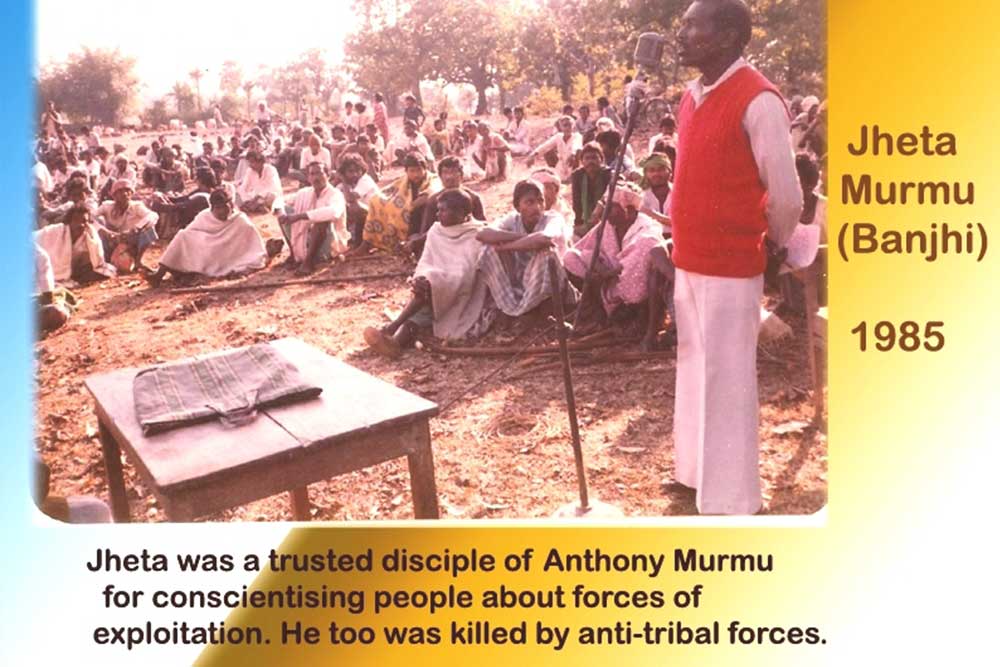
Works carried out through Gram sabha are: Village development planning; Promotion of Manjhi Pargana (traditional) system; Solving local disputes within the community; Make the community aware of the challenges before it; Make the people aware of rights as Adivasis; Preserve the Adiwasi cultural traditions and belief systems; Strengthen community’s economy through different Government Schemes; Provide training programs for adolescents and the village youth; Provide life skill training program for the youth in the village; Legal training program for youth; Skill training: tailoring, pickle making, mat making, bed making, cultivating seasonal vegetables, making puffed rice, preparing sweets and snacks, housekeeping, driving, motor mechanic, electronic work and so on.

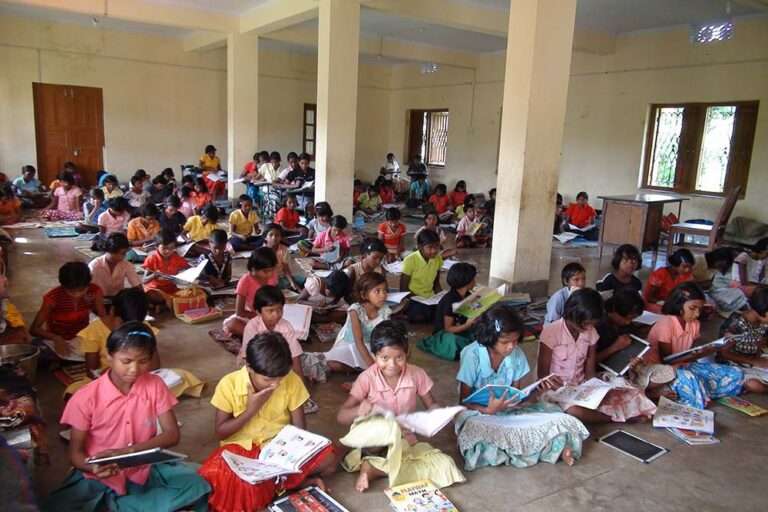
Education
The highest priority Samiti gives for the education of children. There are eight schools run by the Samiti at different areas where no other educational facilities are available. A committee consisting of the representatives of the villages from where the students come to study look after the management of the school. From a no literacy situation these villages have reached to total literacy villages. Nearly 2700 students are getting educated every year in these schools. They manage a bridge school for the drop out students. This year five students are pursuing their metric studies from here.
Health Care
The Primary Health Centre at Kodma continues to save thousands of lives of the rural people. This is more true for those affected by malaria, kalaazar, diarrhea, cholera, T.B., snake bite, skin diseases, etc. Every day on an average 40 patients visit the centre and get healed of their infirmities. During rainy season 60 to 70 patients visit the dispensary.
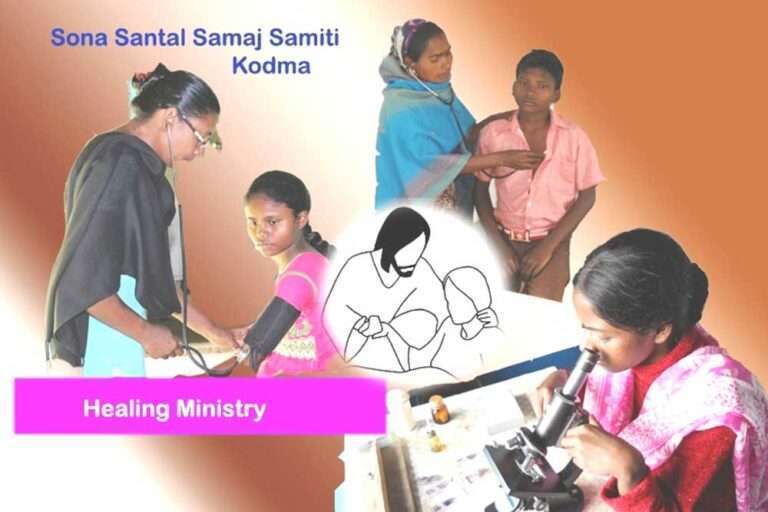
Getting Entitlements
Samiti gets right information about different entitlements and welfare schemes that are available for the tribal people and disseminates these informations to the interior villages and prepares them with appropriate documents to apply for those facilities.
The following are some of the schemes on which Samiti was working this year: Med bandhi (Soil conservation); Making Ponds, Wells, village roads, etc.; P.M.’s Aawas scheme (Prime Minister’s House Construction Scheme); Krishi Asheervad Yojna (Subsidy of Rs. 6000 per year for cultivation); Pensions of different kinds: Old age, widows, Adim Jan Jati, Differently-abled, etc.; Making: Ration card, Job Card, PAN Card, Bank Passbook, etc.
